
 The SFFaudio Podcast #537 – Jesse, Maissa Bessada, and Evan Lampe talk about The Scarlet Plague by Jack London
The SFFaudio Podcast #537 – Jesse, Maissa Bessada, and Evan Lampe talk about The Scarlet Plague by Jack London
Talked about on today’s show:
London Magazine, 1912, Sunday Magazine, Famous Fantastic Mysteries, 1912 book publication, why hasn’t this been a movie?, totally epic, very filmic, no comic book?, it would be a great comic, the big splash, the reveal, he hasn’t seen a human being in three years, the comic book format reveal, one of Jack London’s best, the first time, not the newest theme, The Last Man by Mary Shelley, The Strength Of The Strong, about the same thing, civilization and how civilizations evolve, The Iron Heel, this managed ordered world, an optimistic narrative, the story is fairly brutal, how the socialist thinking was obsessed with planning and order, social darwinism, rude barbarism?, his greatest?, drama, Martin Eden, John Barleycorn, The Call Of The Wild, he can’t get away from dogs, the dog goes into full atavistic mode, recapitulated, an unwashed barbarian, barbarian grandchildren, taking this story as it is, Earth Abides by George R. Stewart, more optimistic, the essential character of this story, end of the world and post apocalyptic stories, endless zombies, a zombie apocalypse with no zombies, fighting off the harsh reality of what its like to go from running water toilet paper hot and cold running ice cream to living off the scraps of the old world, hasn’t seen soap in 60 years, Costco, 500 survivors in the whole world, a lot got burned, the last survivors genre, SCIENCE FICTION doubly, set 100 years from when it is written (2013) and then another 60 years beyond that, so rich in ideas, the future of American from 1912 and in a future far past it, a double critique, inspired by, The Walking Dead is not about class (and little about race), each a race unto themselves, the Aryan sweep is coming again, it did feel white, all about class, on the side of the downtrodden race, humans as basically very terrible, way scarier than a zombie story, zombies as a metaphor, the hordes of people you don’t know, a divisive horror, us and them, killing zombies as a fun thing to do, shambly and slow, not a science fiction story, Jesse’s niece did a course, its about class, so relevant again, the Chauffeur and Vesta van Warden, the luxury airships that the ultra-rich have, we took all the food and left a little bit for our slaves, you don’t understand Hoo-hoo, “slaves”, oh my god, Professor James/John Howard Smith, what’s happening in the states of 1912, a hardening and separating of the classes, medieval or 19th century England, he’s from the upper class, he has three servants, a housekeeper a cook and a chambermaid, at the bottom of the ultra-rich, every inspired by story never talks about class, Buck was a king brought low and turned into a slave, the same thesis, Chauffeur beats his wife, she’s a goddess, that she should be brought so low, an unreliable narrator who is super-reliable, he makes himself so pathetic, nested narrative, he makes himself look bad, everything that happened is what was happening, a super-hard thesis, lets spend time in this universe and see what meaning we, the good the bad and the worst and the best have gone to their eternal rest, the collie dogs are now wolves, that overcoming, back to brute beast, really interesting and fascinating to think about, obsessing with education, trying teach how to count to a billion, so Science Fiction, the courage and heroism of the bacteriologists, WWI imagery, in awe of the education, chapter 6, a day-labourer, the greatest prize next to Vesta, the crude illiterate getting the upper-class woman, huge gaps, not a culture of mass education, Jack London imagined the early 21st century with the working class uneducated, technocratic culture, millions of engineers, not as pessimistic, this is going to happen again, no good thoughts about humanity’s potential, red history, the red plague is people on Earth, population pressure, oozing slowly across to colonize the East, the gunpowder will come, I’m gonna git Granser this gunpowder stuff, the death stick, someday I’ll be boss over the whole bunch of you, the juju magic of the witch-doctor, poor Edwin is gonna be just like his grandpa, he didn’t survive by his book-learning, nothing he did could fix anything, those two automatics (pistols), the only reason he survives is because he’s a human (who can open doors and cans), nothing in his education as literature professor, Terry Nation’s Survivors, The Daleks as an examination of the human future after a future nuclear war, the exact plot of the Scarlet Plague (without the zooming forward), UK “public schools”, we’re all doomed, I don’t know how to smelt, plastic is made out of oil, ‘I have three batteries left. If I don’t find anymore I’ll be deaf.’, part of the education process, take in a profound piece of information and passing it on, the oral tradition, the big thing this story is all about, trying to teach the grandchildren something of value, there are ways of counting what’s beyond your fingers, they’re goat-hearders, is Edwin the smartest?, he’s the most like his grandfather, a medicine man, brute force, a very bleak vision, an English professor, The Sea Wolf, The Iron Heel, social progress is possible, Herbert Spencer, not a good society, obsession with food, post scarcity, civilization has to suppress, a Freudian aspect, training animals, a universe good, something every eater understands, dogs are food motivated, the bear and the wolves, goats, no longer a man of books, carrying coins, carrying teeth, sex and food, Vesta should’ve been mine by rights, he doesn’t stop him, you could never do this in a Hollywood film, save her and himself, he too their child to wife?, Bertha was a hash-slinger (but a good woman-though!), a Lady is a Chauffeur squaw, the opening and the closing, the surf grew suddenly louder, huge sea-lions, he can smell the food cooking, mussels!, he’s all gums now, crying, an empty-crab shell, so happy, his emotional range, really dottering, a beautiful sad story, the old geezer gets more long-winded every day, a small herd of wild horses, a beautiful stallion, horses, the mountain lions, close at hand, the sea-lions bellowing, fought and loved, there’s no victory here, just survival, just other animals, there’s a beauty, there’s a harshness, Earth is coming back, we can have it all year, all the toothsome delicacies are back, the Cliff-House restaurant, what is money?, those little marks don’t mean nothing, in 10,000 years, warning against the medicine men, that’s religion, agriculture, who controls that surplus?, primitive religion, thugs, not the civilization he wants, he predicted Trump!, he predicted Bush, the Board of Magnates, Vesta’s husband, lords of life (and death), stuck-up, some other place to live, sleep in a tree, no person is strong enough, stuck in these systems, kind to the old man, Granser’s going to get to it, his only value is as a storyteller, it won’t be his dayjob, if only a physicist or a chemist had survived, he’s a reliable narrator who is wrong about stuff, conflating food with money, shopping at the organic expensive farmer’s markets, Whole Foods, the poors can’t afford Whole Foods, not amongst the poors, chapter 4, the dean of faculty, full of airships, flying machines, one brave fellow, 300 miles per hour in an aircraft, radio, social systems, the brute reality of nature, the Yukon, what’s so powerful, those prehistorical romances are not just the past, black deaths, we are going to need the skills we don’t have, living off the corpse of the old world, you can’t just trust that Mother Nature is kind, a city is like a giant pampered baby, cuddled and coddled by all the servants going into and out of it, the beauty of nature taking over California again, the monorail, railroad tracks being taken over by tree roots, Life After People, we lost contact with each other, a very slim portion of this future society, teenagers and younger, tending the goats is a job for young boys, the mens’ job is yelling at women and young boys, a reverence for muscles (and punching people), as brown as a berry, a pair of gimlets, an endless series of messages from the outside world, a whole sequence like that in The Call Of The Wild, the coddling of man, the king of the slaves as a dog, as a wolf he’s utterly free but is dependent on his body being strong, doing something that few others do, the boys are the babysitters, thirty years ago people wanted to hear what he had to say, why do you call it Scarlet rather than Red, The Masque Of The Red Death by Edgar Allan Poe, Bliss Carman:
A Vagabond Song
THERE is something in the autumn that is native to my blood—
Touch of manner, hint of mood;
And my heart is like a rhyme,
With the yellow and the purple and the crimson keeping time.
The scarlet of the maples can shake me like a cry
Of bugles going by.
And my lonely spirit thrills
To see the frosty asters like a smoke upon the hills.
There is something in October sets the gypsy blood astir;
We must rise and follow her,
When from every hill of flame
She calls and calls each vagabond by name.
George Sterling, A Wine Of Wizardry, mentioned in London’s biography, poet rich guy, I couldn’t save him, rebelling slaves, the grave tree, toothsome delicacy, fire, how it eats up everybody and turns it to dust, 1914 airplanes, the airships of the rich, Paul talks about the ultra rich bunkers in New Zealand, Peter Thiel, Elon Musk, when the economy collapses he’ll have a bolt-hole, the rich all flee to Hawaii in their dirigibles, it went with them and it preceded them, that’s the one that married the baby, the wilds of British Columbia, Mount Shasta, so much to be explored, incredibly visual, really good at writing nature, full of ideas, a crackerjack book, Vesta is a metaphor for the whole thing, as good as you can get for a girl, drowned by her drunken husband for no reason at all, boiling fish chowder in a covered pot, parasol, the destinies of millions such as he she carried in her pink white hand, her private dirigible, to her!, a leper, ascertain the creature’s name, what the plague did to the world, the most brutal of low class uneducated horrors can be masters over a goddess, goddess of the hearth now has to tend the hearth, too small for a class system, just about strength, you’re my wife because I’m stronger, Evan can’t agree with London’s pessimism, Murray Bookchin, imposing on nature the reflections on our own society, domesticating the goats, division of labour, our ability to make cultures, why we can’t have good things, that’s our culture, human nature vs. culture, from first nature (sexual desire) vs. secondary (marriage), Eskimos, transformed nature, what people were saying about paleolithic, right back to where we are, printing presses and newspapers, the end goal, besides printing presses, not a teleology, goat-herders and hunters and trappers, mussels and crabs, started life as an oyster pirate, specialization is what he’s aiming at, the radio drama adaptation, a 2 hour book into a 29 minute show, dropping the framing sequence, hearing the plague is very familiar, The Walking Dead, The Day Of The Triffids, 28 Days Later, the aftermath 60 years later, they’ve run out of bullets and gasoline, the comics, allowing that progression to happen, how does the zombie system work, how do you have a society, join there society (a movie night!), a world that doesn’t exist, born into a world without movies, when all the movie bulbs have burnt out, ya, whatever grandpa, people are mean (and horrible), repression in 2013, a tweet with a guillotine was too radical, all the slaves he’s been repressing are going to come for him, optimistic stories of this ilk, Stephen King’s The Stand is essentially optimistic, the bad guy is the state, good vs. evil, both states suck, the triumph of solidarity, acculturated to states and authority, cultures are cooperative, in a dog eat dog world, calling our friends, exploitation within the system, battered husbands and battered wives, its not me its the corporation you work for, bad guys and good guys, The Day Of The Triffids ending, base instinct is love not hate, we need to recenter, a extremely pessimistic work, David Graeber’s book on debt, barter isn’t the first economy, social debt, everybody knows I gave you this are you going to be that guy that didn’t give it back?, my son loves your daughter, barter is from people used to exchange, the police as the barrier between you and the criminal, going back to hierarchy, Neverwhere by Neil Gaiman has fantastic accounting, I made dinner yesterday, bankruptcy, so interesting to think about The Unincorporated Man by Dani Kollin and Eytan Kollin, utopian/dystopian future, forced mental audit, the ultimate invasive, good writing at the end, 24 hours, Evan read it for me!, Ayn Rand took over the U.S. government, “personal responsibility”, capitalism is eating individual human beings from birth!
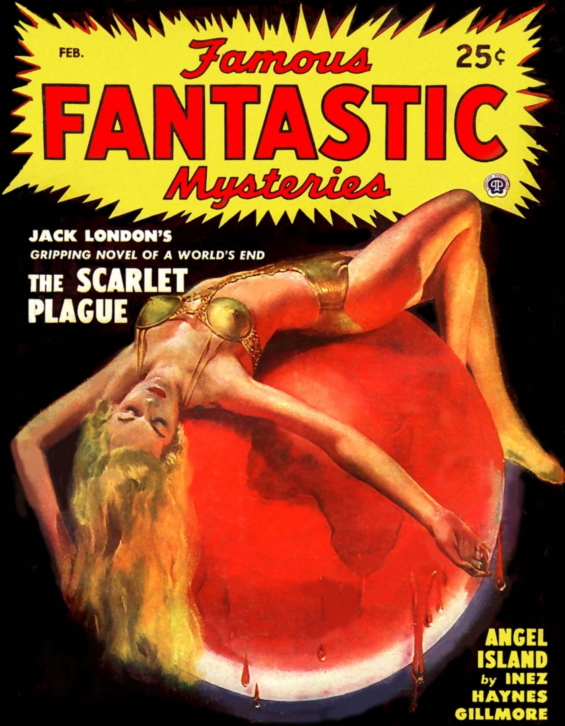
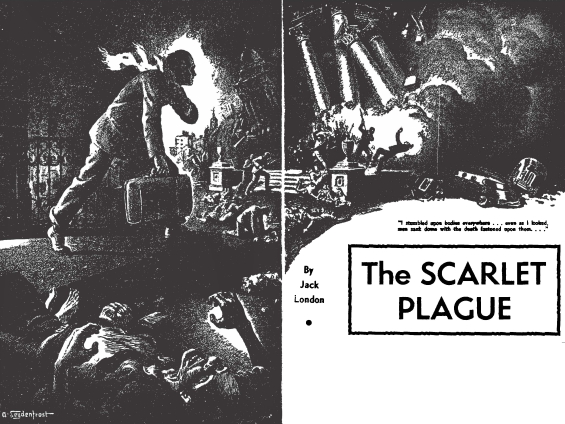
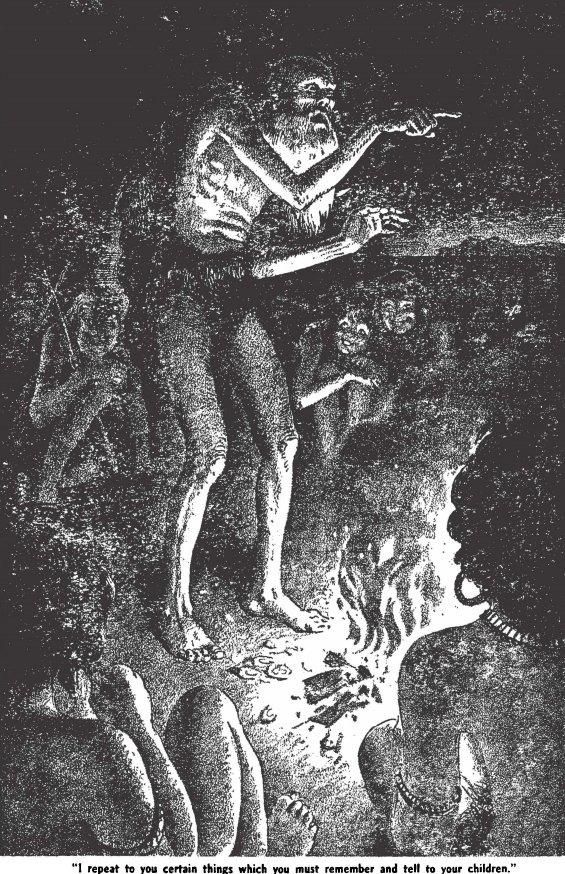
Posted by Jesse Willis
![]()
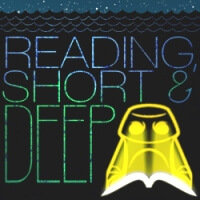 Reading, Short And Deep #232
Reading, Short And Deep #232





 Plague Year (Plague #1)
Plague Year (Plague #1)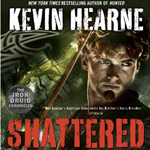 Shattered (The Iron Druid Chronicles, #7)
Shattered (The Iron Druid Chronicles, #7)
